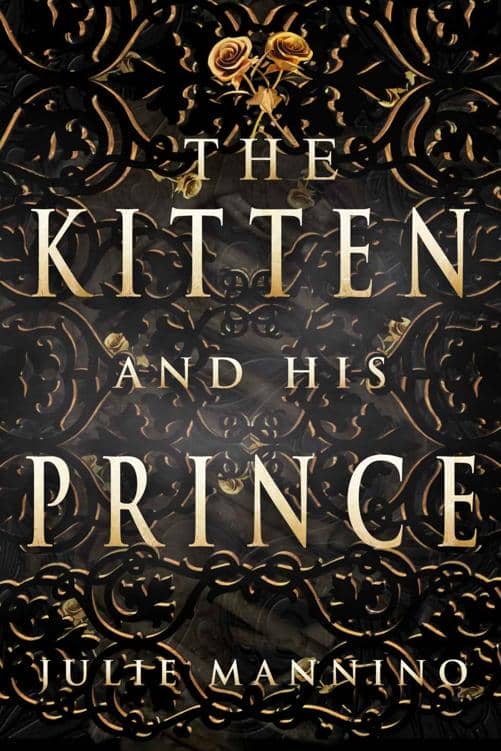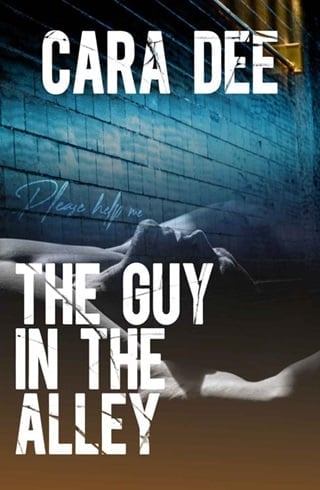13. group insanity
13
GROUP INSANITY
DAY 10
It's incredible that Chastain hasn't mysteriously disappeared before now. Seeing four to five crazies a day, I'd need a break for sure. I do have to give the guy some credit, if not a healthy dose of respect. His schedule is brutal, but he's never seemed distracted or tired. Frustrated, yes, but I think I might bring out the worst in him.
He sees Tiffany from 7:30 to 8:30. Nix's slot, from 8:45 to 9:45, is currently empty. I torture the poor doc from 10:00 to 11:00, Preston's session is from 11:15 to 12:15, and Callum's is from 1:45 to 2:45. Kinsey's therapy is from 3:00 to 4:00, which I'll admit annoyed the crap out of me initially. I thought it indicated preferential treatment. Having seen what happens to her at night, though, the scheduling now makes sense. Clearly the woman doesn't get much quality sleep.
Breakfast hours are from 7:00 to 8:30, lunch is from 12:30 to 1:30, and dinner is from 6:00 to 7:30. I've never seen Chastain in the cafeteria, so I imagine he eats alone in his office, munching on sad sandwiches while regretting all his life choices.
Group therapy, where I'm sitting now, is from 4:00 to 5:15. An hour and fifteen minutes of forced conversation and bonding. As Chastain normally watches the sessions from his office computer, that means the man works from around 6:30 or 7 a.m. to nearly 6 p.m.
Definitely not a life I'd relish.
I pick at a hangnail on my thumb, thinking about what Tiffany told me—that Chastain is watching remotely—while our moderator Ruben gives us today's group focus.
"We're going to take a journey today from the book of somatic therapy, exploring the interaction between mind and body in the context of the past. I want each of you to think of an event that occurred in adolescence, roughly age ten to nineteen. I'll give you a few minutes."
Tiffany's hand shoots up. "Like, what type of event? Something good or bad?"
Ruben shrugs, smiling. "Whatever you think of first."
It doesn't take long for a memory to surface, one that makes me drop my chin to hide my smirk. I was a terror in high school, the queen of pranks. But I only ever targeted those who deserved it. Bullies. Snobs. Misogynistic pricks.
The rest of the group fidgets and sighs as they dredge through their formative years. When everyone finally settles, it's with expressions of embarrassment or discomfort.
"Okay, who wants to go first?"
We all trade glances, and Tiffany eventually raises her hand. Defiant tilt to her chin. Embarrassed flush on her cheeks. Not a good omen for what's about to come out of her mouth.
Ruben nods, and Tiffany fiddles with the multitude of earrings marching up the lobe of her right ear. "Okay, so, when I was twelve I got my period for the first time. I called my best friend and told her, and she said her mom told her that periods make you fat."
Kinsey and I simultaneously grunt in disgust.
"Go on," urges Ruben.
"I asked my friend what I was supposed to do. She said her mom made her drink these smoothies the entire time she's bleeding. So I got the recipe and started drinking them the next day." She pauses. "All I wanted was chocolate and pizza for a week. It was the first time I realized how much control food had in my life."
Shifting on my chair, I decide for the billionth time that I fucking hate group therapy. I look at Ruben, waiting for him to warn her not to divulge details too near to her particular diagnosis, but he merely smiles.
In a flash of understanding, I realize why Oasis has that particular rule—it makes us develop bonds and trust each other before we spill our secrets. Which given enough time is apparently a foregone conclusion.
Clever bastards.
"Great, Tiffany. Now I want you to think about what you felt during that conversation."
She licks her lips. "Hungry."
Callum laughs, but Ruben shoots him a silencing glance. "Go on."
"And, um, scared. I had cramps, too, so I was in pain. "
Ruben nods sagely, glancing at each of us in turn. "I want everyone to think about this phrase: neurons that fire together, wire together . What this means is that when uncomfortable or traumatic moments in childhood are linked to an action—say, smoking a cigarette or eating or taking a drug—your brain wires itself to always connect those emotions to the corresponding coping mechanism."
I frown as his words drop in the dark, deep well of my memory, and wonder if this explains why I hate rain and don't associate sex with emotional intimacy. After all, it was raining when my mother and brother died and I lost my virginity to a stranger.
What a mind-fuck.
"Mia, why don't you go next?"
My head jerks up, my mind completely blank. I can't remember what memory I was going to share.
"What are you thinking about?" urges Ruben.
I cross my legs. Then uncross them and bounce my knees. "The first time I ate kielbasa sausage. I got the stomach flu that night. To this day I can't stand the sight of the stuff."
There are soft chuffs of laughter around me. Ruben's dark eyes regard me knowingly; they don't have the piercing power of Chastain's icy blues, but they're in the ballpark.
"And what were you feeling the night you jumped into the pool after-hours with Preston?"
I chew my lip. "Antsy. Hot."
"And? "
I glance at Callum, who gives me a little nod of encouragement.
I mutter, "Annoyed."
What I don't say—can't—is that I was out of my head with jealousy after seeing Nora blushing at a smiling Chastain.
Stupid, Mia. So stupid.
"Do you see any parallels in your life of similar occurrences?"
I sigh, resigned. Of course I do. I've never been accused of lacking brain cells. Every time I've done something reckless, it's because I'm feeling something I don't want to feel. I don't skydive when I'm happy.
"Yes," I answer, not elaborating.
Ruben, either sensing my unease or that he's not going to get more from me, shifts his attention to Preston.
I listen to the rest of the stories with half an ear. Preston was caught jerking off in the shower by his dad, who told him he'd never fuck a real woman. Kinsey fell on her face during her first red carpet walk as a teenager and had to deal with weeks of tabloids exploiting the images. Callum was bullied at school for being too tall and skinny.
Very different lives, same story. Shame, secrets, and humiliations that shaped our self-identities. That led us to starvation, self-harm—Preston showed me his arms—and love addiction.
My personal poison doesn't fit in any of the standard boxes, but it's nevertheless real. A corrupt seed was planted in me on that rainy night when instead of crying from loss, I'd jumped off the roof and felt, for brief seconds, close to my mother and brother.
Escaping reality is my ultimate high—chasing that elusive feeling until I achieve my goal. Freedom from memory. From pain.
Do I want to die? No.
Do I want to live?
That's harder to answer.
By the time group therapy wraps up, a bad idea is firmly embedded in my mind.
 Fullepub
Fullepub 



